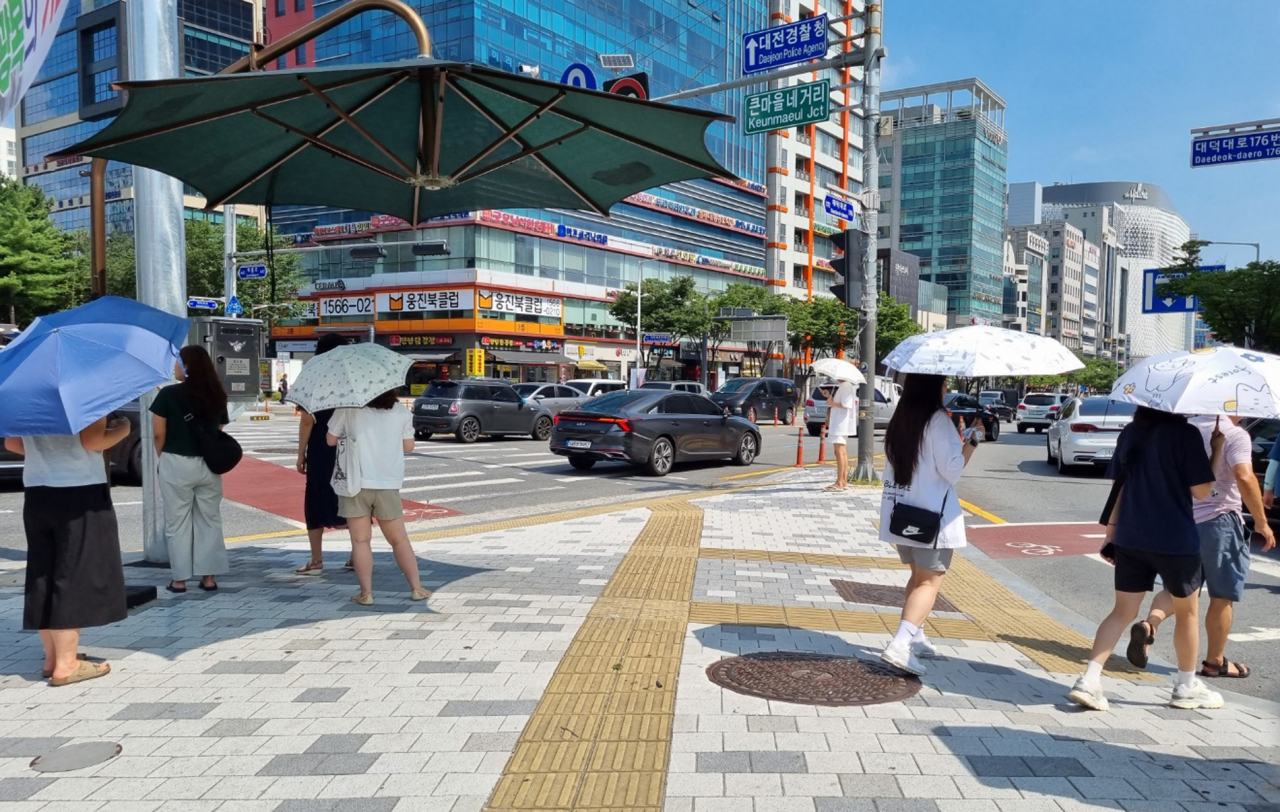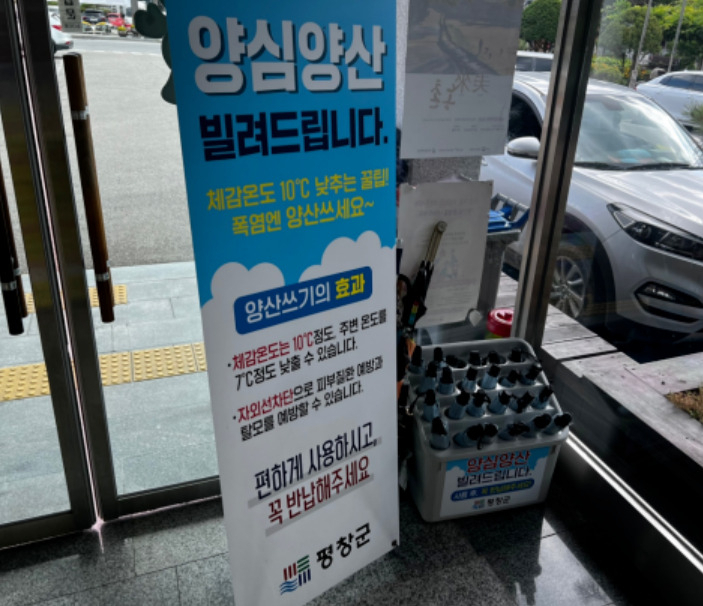Long-term exposure to extreme heat undermines cognitive health: study
Use of parasol reduces temperature by up to 7 C, officials say
By Lee JaeeunPublished : Aug. 16, 2023 - 14:48

Cumulative exposure to extreme heat can undermine cognitive health in the long run, especially among vulnerable groups, a US study showed Wednesday.
The 12-year study by the University of Michigan Institute for Social Research was conducted on nearly 9,500 adults in the US, aged 52 or older, from 2006 through 2018, as part of the Health and Retirement Study measuring participants' cognitive function over time.
The research team found that high exposure to extreme heat was associated with faster cognitive decline among residents of poor neighborhoods, it said in the study published in the Journal of Epidemiology and Community Health earlier this month.
“Cognitive decline may not manifest right after a single heat event, but repeated or prolonged extreme heat exposure may be detrimental," said co-author Virginia Chang, associate professor of social and behavioral sciences at the NYU School of Global Public Health.
"Cumulative exposure to extreme heat can trigger a cascade of events in the brain, including cellular damage, inflammation, and oxidative stress, all of which can exhaust one's cognitive reserve.”
Affluent neighborhoods tend to have resources that can help in a heat wave, such as well-maintained green spaces, air conditioning and cooling centers, but in disadvantaged neighborhoods, those resources may not exist, according to the study.
Also, residents in poor neighborhoods are more likely to experience chronic stress, greater social isolation and fewer specialized services for cognitive health, the researchers added.
The research also found that cumulative exposure to extreme heat in the long run was associated with faster cognitive decline among Black older adults but not white or hispanic older adults. Black older adults may have disproportionately experienced systemic disadvantages throughout their lives due to structural racism, segregation, and other discriminatory policies, all of which may affect their cognitive decline, the research team noted.
Heat is one of the biggest killers in the US, with more deaths than hurricanes, tornadoes and lightning combined, the research team said in explaining the background for the study.
Also, although the elderly and children are particularly vulnerable to heat-related illnesses, less is known about the long-term consequences of heat on cognitive health.
Separately, the Korea Disease Control and Prevention Agency has recommended the public take precautions against heatstroke and other heat-related illnesses such as heat exhaustion, in light of a recent heat wave.
The recommendations include taking cool showers frequently, drinking cold water often, staying indoors if possible and wearing loose-fitting, light-colored clothing and wide-brimmed hats, and carrying parasols if they have to go outside.
When using a parasol, the ambient temperature can drop by up to 7 degrees Celsius, and the sensory temperature by up to 10 C. By reducing harmful ultraviolet rays, parasols also can prevent hair loss, and skin diseases, including skin cancer, officials said.




![[KH Explains] Hyundai Motor’s plan for new landmark keeps hitting bumps](http://res.heraldm.com/phpwas/restmb_idxmake.php?idx=644&simg=/content/image/2024/05/13/20240513050626_0.jpg&u=20240513192803)


![[Grace Kao] American racism against Stray Kids](http://res.heraldm.com/phpwas/restmb_idxmake.php?idx=644&simg=/content/image/2024/05/13/20240513050827_0.jpg&u=)




![[Graphic News] Over 80% of people filing bankruptcy in Seoul in their 50s and older](http://res.heraldm.com/phpwas/restmb_idxmake.php?idx=644&simg=/content/image/2024/05/12/20240512050205_0.gif&u=)







